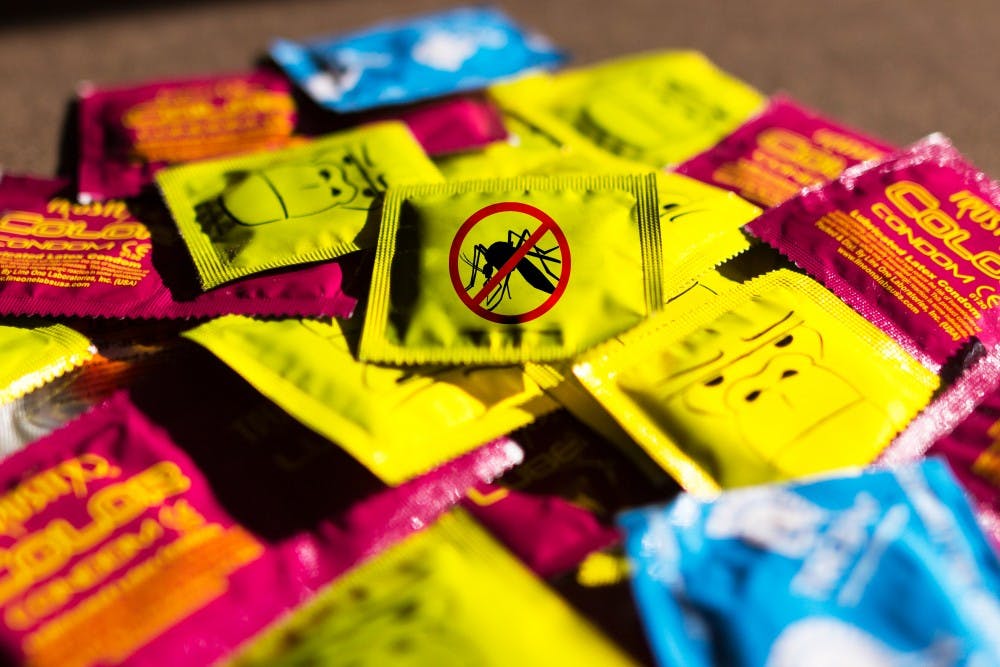In today's times, college-aged students know that they need protection to ward off sexually transmitted infections like syphilis, herpes and chlamydia. But what some students don't know is that by using a condom, they can also be protecting against the Zika virus.
ZIka, a mosquito born disease that results in fever, rash, joint pain and muscle pain, has been running rampant in multiple humid places in the United States, but has yet to have an impact on the dry Arizona desert. With monsoon season come and gone, the time when Arizonans are most vulnerable to a mosquito bite, and therefore Zika, some might say we are out of the woods, but local experts say it's too soon to tell.
“We might not be out of the woods with the Zika virus,” says James G. Hodge, professor of public health law and ethics at Arizona State University. "Infected mosquitos could resurface during the spring monsoon season."
Currently, the Zika virus is not a major threat to Arizona State University students. However, Mexico is a popular vacation spot among students.
People traveling to Mexico are at a higher risk for the virus, says Craig Levy, an Epizoologist for the Maricopa County Department of Public Health. However, there is no Zika in Rocky Point; it currently only exists in southern Mexico.
It should be noted the disease can be sexually transmitted even if the symptoms are not present, according to the Centers for Disease Control and Prevention.
While visiting a Zika active area, everyone should be careful about mosquito bites and practice safe sex, Levy says. Pregnancy is something that must be taken seriously and it needs to be prevented after visiting an infected area, he adds.
Without plans of pregnancy, Zika is relatively mild in most cases, Levy says.
Zika has made a great impact because countries have advised people to post-pone pregnancy, Dr. Stephen Johnston says.
“If it weren’t for the pregnancy issue, it would not be a big deal,” Levy says.
People usually don’t get sick enough to go to the hospital, and they very rarely die of Zika, according to the CDC. For this reason, many people might not realize they have been infected. A Zika carrier may display mild signs of a fever or rash.
The period of time the virus can be transmitted it still unknown.
“Being a mosquito borne disease, they are totally unpredictable,” Levy says.
These infectious mosquitos are thriving because we have changed the Arizona climate into a sub-tropical paradise for these mosquitos, Levy explains.
“What we would really like everybody to do is check their own yard’s to make sure they don’t have anything that is holding rain water or spring water,” Levy says. “Because that is a potential breeding source for mosquitos.”
Zika is not the only potential threat. Mosquitos are also carrying dengue and chikungunya, according to Levy. Dengue and Chikungunya are also mosquito borne diseases that result in headaches, muscle pain and joint swelling.
Chikungunya seems to be on its way down. Zika may follow the same pattern, Levy says. It will probably continue and then burn itself out to where it goes away, he adds.
“Next year could be a continuation, worse or coming down,” Levy explains. The future of Zika is still unknown.
“The Zika virus is not predictable just possible,” Hodge says.




